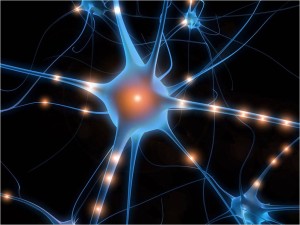Mirror Neurons are a scientific way of saying that when we see a beautiful model wearing a great outfit in Vogue magazine, we want to buy it because we project how beautiful we will look and feel wearing that outfit. Basically, we envision ourselves as a mirror image of the model.
This method of marketing is well, everywhere. Sometimes it’s hard not to walk by a store or put down the magazine and move on. Not every brand will appeal to you this way. The company selling the outfit targets certain people with specific desires, tastes, and values. If a brand is really great at reaching your mirror neurons, you will be stimulated time and time again, and become one of their loyal buyers. Some brands even develop a cult-like followings such as Apple with their white ear buds.
There’s nothing wrong with this, and feeling great is a good way to start the day. But some of us are a little more addicted to shopping than others, and we need to control this impulse to effectively manage our money. The first step is to be aware of what mirror neurons are, and so hopefully we’ve achieved that. But why are mirror neurons triggered more often in some people than others?

Acceptance
Our desire to purchase can be tied to improving our social status. If we have the coolest items, we perceive we are cool, and are more likely to be accepted socially. Part of the need is wanting to belong to a tribe – again using the Apple brand as an example – iPhone users compare tips, tools, accessories and the latest product. If everyone around you in your company uses Apple but you, you’ll be left out of the conversation.
Sometimes the need exists because we’re not happy with who we are, and are searching for external symbols that say we have social status to other people. We want to show we are equal to the people we perceive are our peers. This might be work status, or neighborhood status as examples. The challenge is to acquire a few purchases that give you what you need, while being able to pay your debt off every month.
The Rush
Sometimes purchasing is just tied to the sheer Dopamine rush in the brain, which according to UCLA’s Dr. Susan Brookheimer, increases with anticipation of all types of rewards. Unfortunately the Dopamine dissipates shortly after your purchase, leaving a higher credit card bill in the aftermath and the often cited phrase “what was I thinking?”
Shopping can be a game, or a form of regaining control. Getting the best deal – winning – is the ultimate game for some shopaholics. Their mirror neurons might be receptive to getting that desired outfit and feeling beautiful – for the lowest cost. Think discount designer stores. If it’s all about regaining control, shopping likely occurs after a bad day. We want to reward ourselves for living through the day, or just doing what we want when we want, and feeling successful at the end of the shopping spree.
Becoming self aware of our triggers, and understanding how expert marketers target you, is a start to managing your expenses.
Carrie Rattle is a Principal at BehavioralCents.com, a web site for women focused on the psychology of money behaviors. She has worked in the financial services industry for 20+ years and hopes to inspire women to better prepare themselves for financial independence. Thoughts always welcome: carrierattle@behavioralcents.com.

Carrie Rattle is a Principal at BehavioralCents.com, a website for women focused on mind and money behaviors. She has worked in the financial services industry for 20+ years and hopes to inspire women to better prepare themselves for financial independence.
